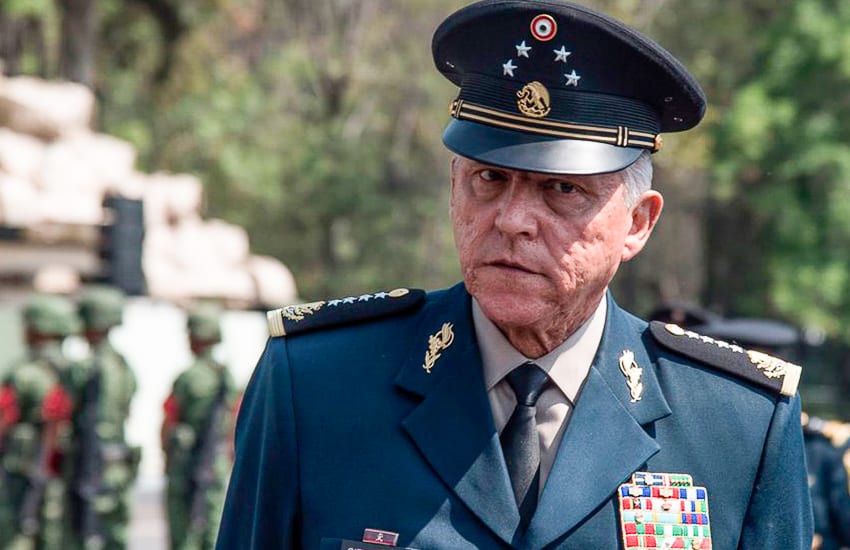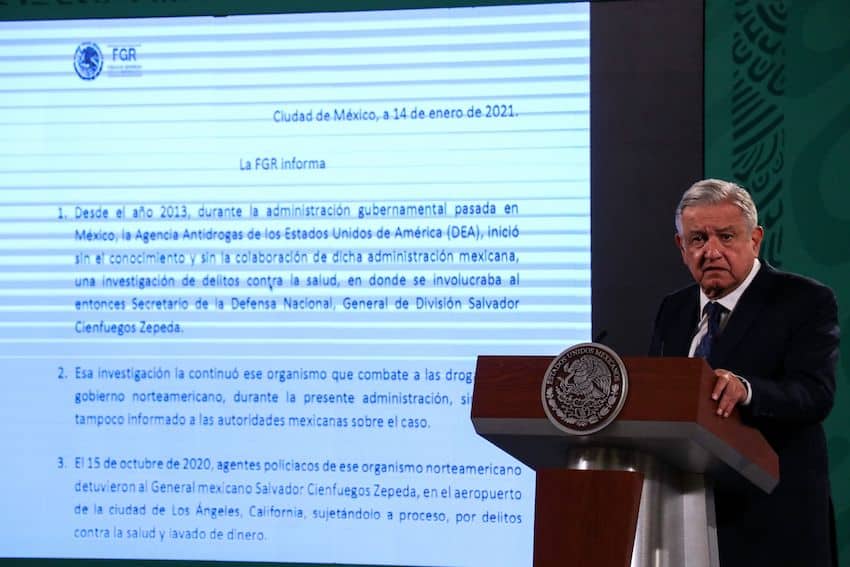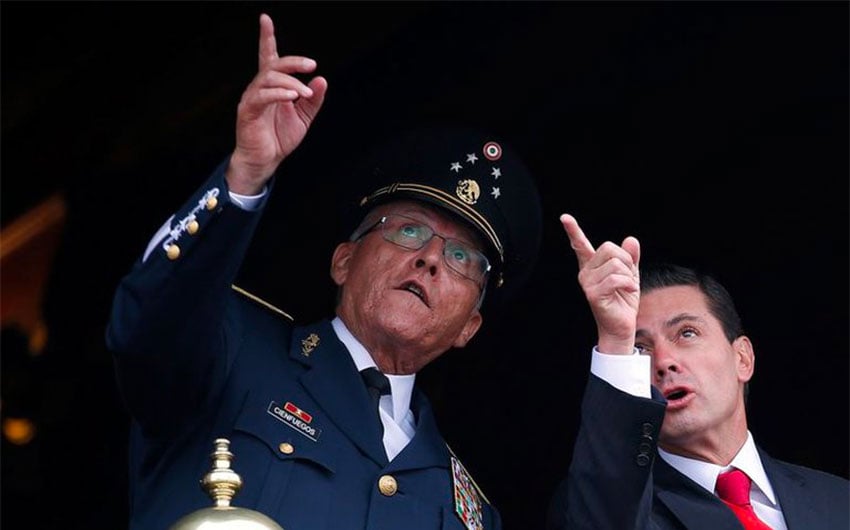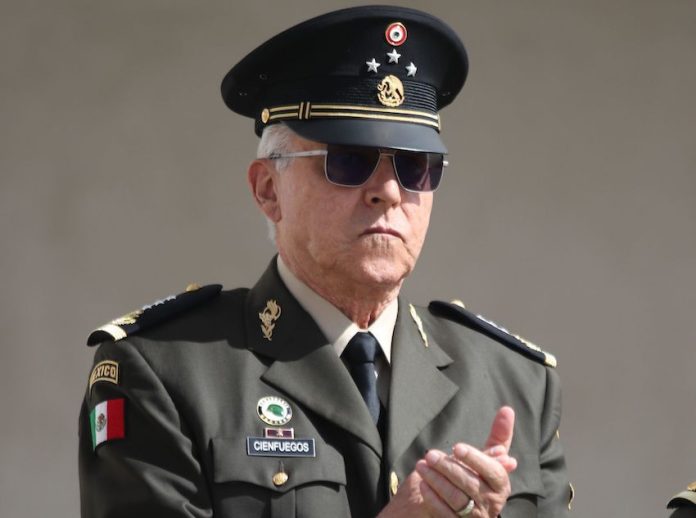President López Obrador on Thursday once again accused the United States Drug Enforcement Administration (DEA) of fabricating charges against former defense minister Salvador Cienfuegos and asserted that there is nothing to link the ex-army chief to the abduction and presumed murder of 43 students in Guerrero in 2014.
Cienfuegos, defense minister during the 2012-18 presidency of Enrique Peña Nieto, was arrested at Los Angeles airport in October 2020 on drug trafficking and money laundering charges.

Under pressure from the Mexican government, the United States later dropped the charges against Cienfuegos and granted Mexico its wish to conduct its own investigation. The Federal Attorney General’s Office exonerated the retired general in January 2021, less than two months after he returned to Mexico from the U.S.
Speaking at his morning press conference on Thursday, López Obrador said that it was “proven” that the DEA fabricated charges against Cienfuegos.
“… We were able to verify that it was an act of revenge and there was no evidence,” he said.
López Obrador asserted that Mexico’s exoneration of Cienfuegos made DEA representatives “very angry.”

“They wanted to have a weakened Mexican army, weakened armed forces of Mexico, [with a former defense minister] seated in the dock [of a court] so that they could do whatever they wanted in Mexico as [former president] Calderón allowed them,” he said.
The president’s remarks came a day after he presented Cienfuegos with an honorary military decoration at an event in Perote, Veracruz, marking the 200th anniversary of the foundation of the Heroic Military College. The former defense minister was director of the Mexico City military academy between 1997 and 2000.
The awarding of the “Heroico Colegio Militar Bicentenary medal” to Cienfuegos sparked criticism in Mexico and the United States.
“For me, it’s an insult, not only for justice in the United States but also for justice in Mexico,” Mike Vigil, former head of international operations for the DEA, told the news website Infobae.

“This shows that high-ranking people can operate with complete impunity,” he said.
Vigil said that accusations in the United States aren’t made unless there is “convincing evidence,” especially in a case involving a former defense minister.
Some of the criticism in Mexico was based on the fact that Cienfuegos was army chief when 43 students from the Ayotzinapa Rural Teachers College were abducted in Iguala, Guerrero, on Sept. 26, 2014. The army is accused of involvement in the crime, and more than a dozen of its former members including two ex-generals are currently detained in connection with the case.
López Obrador said there is “nothing” in the Ayotzinapa investigation against Cienfuegos, and declared that journalists with “other information” should disclose it.
The real reason for the discontent with the government’s decision to recognize the former defense minister for his service to the Heroic Military College is that “we intervened in the face of an action that we considered to be a violation of our sovereignty by the DEA,” the president said.
Shortly after Cienfuegos’ arrest, then-foreign affairs minister Marcelo Ebrard said that Mexico had expressed its “profound discontent” to the United States over not being informed about the plan to arrest the former defense minister.

As it pressured the U.S. to return Cienfuegos to Mexico, the federal government implicitly threatened to restrict the activities of U.S. agents working in Mexican territory, and even after the ex-defense minister was sent home, there were significant delays in processing visas for DEA agents.
In April, López Obrador accused the United States government of “abusive interference” and espionage after the DEA revealed it had infiltrated the Sinaloa Cartel.
Despite that, Mexico and the United States currently have a solid, wide-ranging security relationship, cooperating in the fight against fentanyl, arms trafficking and other security challenges.
United States Secretary of State Antony Blinken said last week that “more than ever before” in his 30 years of experience in foreign policy, “the United States and Mexico are working together as partners in common purpose.”
“… Two years ago, United States and Mexico launched the Bicentennial Framework for Security, Public Health, and Safe Communities. And in doing this, we acknowledged a shared responsibility, a shared responsibility as neighbors to enhance the safety, the security, the well-being of our people,” he said at the conclusion of high-level security talks in Mexico City.
With reports from El Financiero, El Universal, El País and Infobae
